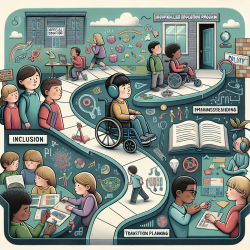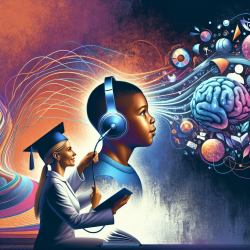Special education in British Columbia is governed by a comprehensive framework designed to ensure that all students have equitable access to learning opportunities and the pursuit of excellence. This blog will delve into the key aspects of special education in British Columbia, including policy, terminology, and practical implementation.
Key Terms and Definitions
- Integration: The placement of students with special needs in regular classrooms or alternate placements based on individual needs.
- Mainstreaming: An outdated term replaced by "integration," focusing on including students with special needs in regular educational settings.
- Modifications: Instructional and assessment-related decisions to accommodate a student's educational needs with individualized learning goals different from the standard curriculum.
- Neighbourhood School: The school a student would normally attend if they did not have special needs.
- School-Based Team: A group of school personnel who assist classroom teachers in developing and implementing instructional strategies for students with special needs.
- Transition Planning: Preparation, implementation, and evaluation to help students transition from one educational environment to another, such as from school to post-secondary education or work.
Special Education Policy Framework
The Special Education Policy Framework for British Columbia, established in 1995, guides the development of legislation and guidelines for special education programs and services. This framework ensures that all students have equitable access to learning and opportunities for achievement.
Legislation and Regulations
Several key orders and acts govern special education in British Columbia:
- Special Needs Students Order (M150/89): Defines students with special needs and describes the obligations of school boards to consult with parents regarding placement and integration.
- Individual Education Plan Order (M638/95): Requires school boards to design and implement Individual Education Plans (IEPs) for students with special needs.
- Student Progress Report Order (M191/94): Describes reporting requirements for students with special needs.
Inclusion and Placement
British Columbia promotes an inclusive education system where students with special needs are fully participating members of the learning community. The emphasis is on educating students in neighbourhood school classrooms with their age and grade peers, with appropriate use of resource rooms or specialized settings when necessary.
Individual Education Plans (IEPs)
IEPs are crucial for students with special needs, outlining individualized goals, support services, and adapted materials. School boards must ensure that IEPs are reviewed annually and involve parents and students in the planning process.
Evaluation and Reporting
Standards for all students, including those with special needs, are developed with high but appropriate expectations for achievement. Reporting should reflect individual goals and may include performance scales, letter grades, and structured comments.
Roles and Responsibilities
Various stakeholders, including the Ministry of Education, school districts, schools, teachers, and parents, play crucial roles in delivering and supporting special education services. Collaboration and clear communication are essential for effective service delivery.
Transition Planning
Transition planning is vital for helping students move from one educational environment to another. It should be part of the IEP and involve collaboration among educators, parents, and community services to ensure smooth transitions.
Resources and Support
Several resources are available to support special education in British Columbia, including the Provincial Resource Centre for the Visually Impaired (PRCVI), Special Education Technology BC (SET-BC), and various outreach programs for specific needs such as autism and deafblindness.
For more information, please follow this link.










